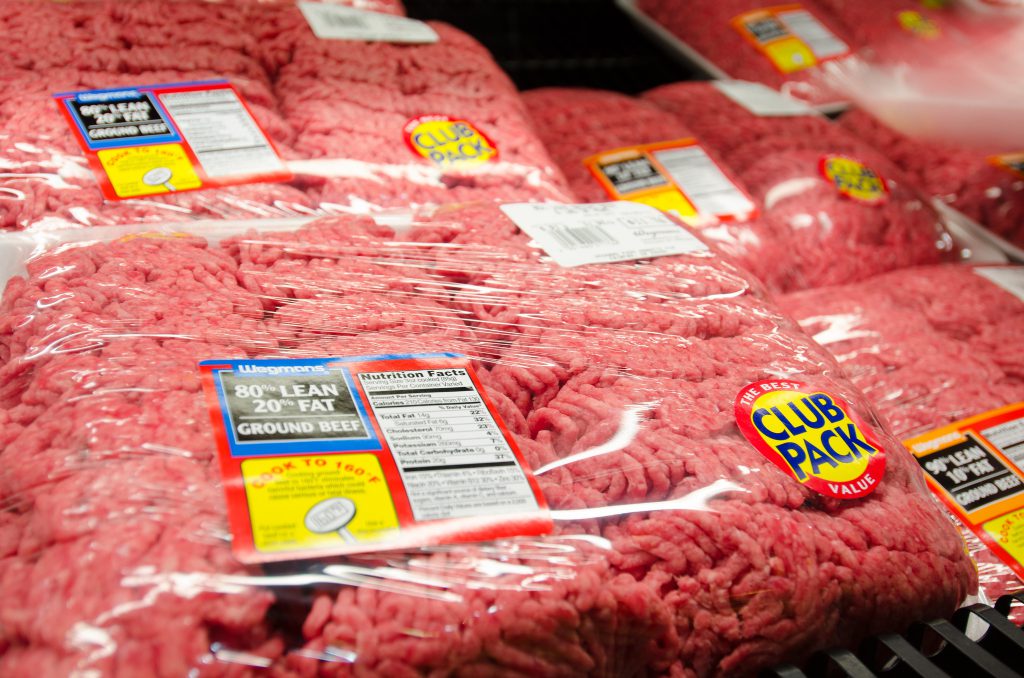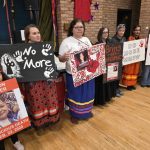Kaul, Unions Push Meatpacking Safety Rules
Kaul among 20 state attorneys general pushing Trump for tougher regulations.
Attorney General Josh Kaul and union leaders are calling for tougher regulation of the meatpacking industry after President Donald Trump issued an executive order to keep packing companies operating despite the fact that thousands of workers have been infected by COVID-19.
Kaul is one of 20 state attorneys general who signed a letter from the office of Maryland AG Brian Frosh sent to the White House on Tuesday, criticizing Trump for ordering plants to reopen and stay open under the Defense Production Act (DPA).
“The industry’s workers are risking their lives to maintain production in these facilities under extremely unsafe working conditions,” the letter states. “Your action purporting to force plants to stay open and employees to continue working must be accompanied by the enforcement of standards to ensure the safety of these essential workers.”
The letter urges the Trump administration to strengthen worker safety guidelines for meat and poultry processing plants issued by the Centers for Disease Control and Prevention (CDC) and the Occupational Health and Safety Administration (OSHA) and to make them mandatory.ex
The call echoes that of meatpacking workers and unions. “We want OSHA and the CDC to have strict guidelines and make them enforceable,” says Jake Bailey, food processing director for the United Food & Commercial Workers Local 1473, which represents about 5,000 meatpacking employees in Wisconsin, including at JBS Foods in Green Bay and the Smithfield Foods Patrick Cudahy plant in the Milwaukee suburb of Cudahy.
In Wisconsin, according to a database kept by the Midwest Center for Investigative Reporting, infections have been found in employees of at least six meatpacking plants. They include two in Green Bay plants — one owned by JBS USA, where at least 262 employees and 86 other people connected to employees have been infected, and the other by American Foods Group, with 170 or more employees and 27 other people who have been infected. Others include the Cudahy plant, where at least 89 people have been infected; Salm Partners in Denmark, Wis., with at least 35 people infected; Kenosha Beef, in Kenosha, with 15 people infected; and Calumet Diversified Meats in Pleasant Prairie, with 22 people infected — including two deaths.
The JBS plant and the Cudahy plant have been among those in the state that have closed temporarily. The shutdowns affected a total of nearly 2,500 workers, Bailey says.
Industry insiders have told the Wisconsin Examiner that the number of meatpacking workers sickened with the illness may be much higher than has so far been publicly disclosed.
Bailey says employers whose workers are represented by the UFCW have been instituting safety measures, slowing down plant lines, keeping workers at least 6 feet apart where possible and placing clear plastic protective shields between workers when they can’t be separated more.
“In a lot of these rooms, there just isn’t enough real estate to get 6 additional feet in some areas,” Bailey says. Workers have also been given face coverings, but “not all of the equipment we’re asking for is readily available.”
The union has sought more personal protective equipment (PPE), including cloth masks for workers and face shields to block transmission of the virus from other people nearby, he said.
Employers have relaxed rules about absenteeism and sick time somewhat, says Bailey, but some of those allowances are likely to end soon. Higher premium pay that has been put in place during the pandemic is likely to be discontinued through the summer, he adds.
The union and the attorneys general alike are seeking OSHA and CDC rules that make testing packing workers a top priority; ensure access to PPE for all workers; 6-foot distancing and barriers where that is not possible; and isolation and quarantine, with full pay, for all workers who test positive for COVID-19.
Last week Sen. Tammy Baldwin sent a letter to three meatpacking companies, JBS, Smithfield and Tyson Foods, taking them to task for health and safety hazards in the industry exacerbated by COVID-19.
Baldwin has introduced legislation to require a temporary OSHA standard obligating workplaces to institute infectious disease exposure control plans during the pandemic.
Reprinted with permission of Wisconsin Examiner.
More about the Coronavirus Pandemic
- Governors Tony Evers, JB Pritzker, Tim Walz, and Gretchen Whitmer Issue a Joint Statement Concerning Reports that Donald Trump Gave Russian Dictator Putin American COVID-19 Supplies - Gov. Tony Evers - Oct 11th, 2024
- MHD Release: Milwaukee Health Department Launches COVID-19 Wastewater Testing Dashboard - City of Milwaukee Health Department - Jan 23rd, 2024
- Milwaukee County Announces New Policies Related to COVID-19 Pandemic - David Crowley - May 9th, 2023
- DHS Details End of Emergency COVID-19 Response - Wisconsin Department of Health Services - Apr 26th, 2023
- Milwaukee Health Department Announces Upcoming Changes to COVID-19 Services - City of Milwaukee Health Department - Mar 17th, 2023
- Fitzgerald Applauds Passage of COVID-19 Origin Act - U.S. Rep. Scott Fitzgerald - Mar 10th, 2023
- DHS Expands Free COVID-19 Testing Program - Wisconsin Department of Health Services - Feb 10th, 2023
- MKE County: COVID-19 Hospitalizations Rising - Graham Kilmer - Jan 16th, 2023
- Not Enough Getting Bivalent Booster Shots, State Health Officials Warn - Gaby Vinick - Dec 26th, 2022
- Nearly All Wisconsinites Age 6 Months and Older Now Eligible for Updated COVID-19 Vaccine - Wisconsin Department of Health Services - Dec 15th, 2022
Read more about Coronavirus Pandemic here





















